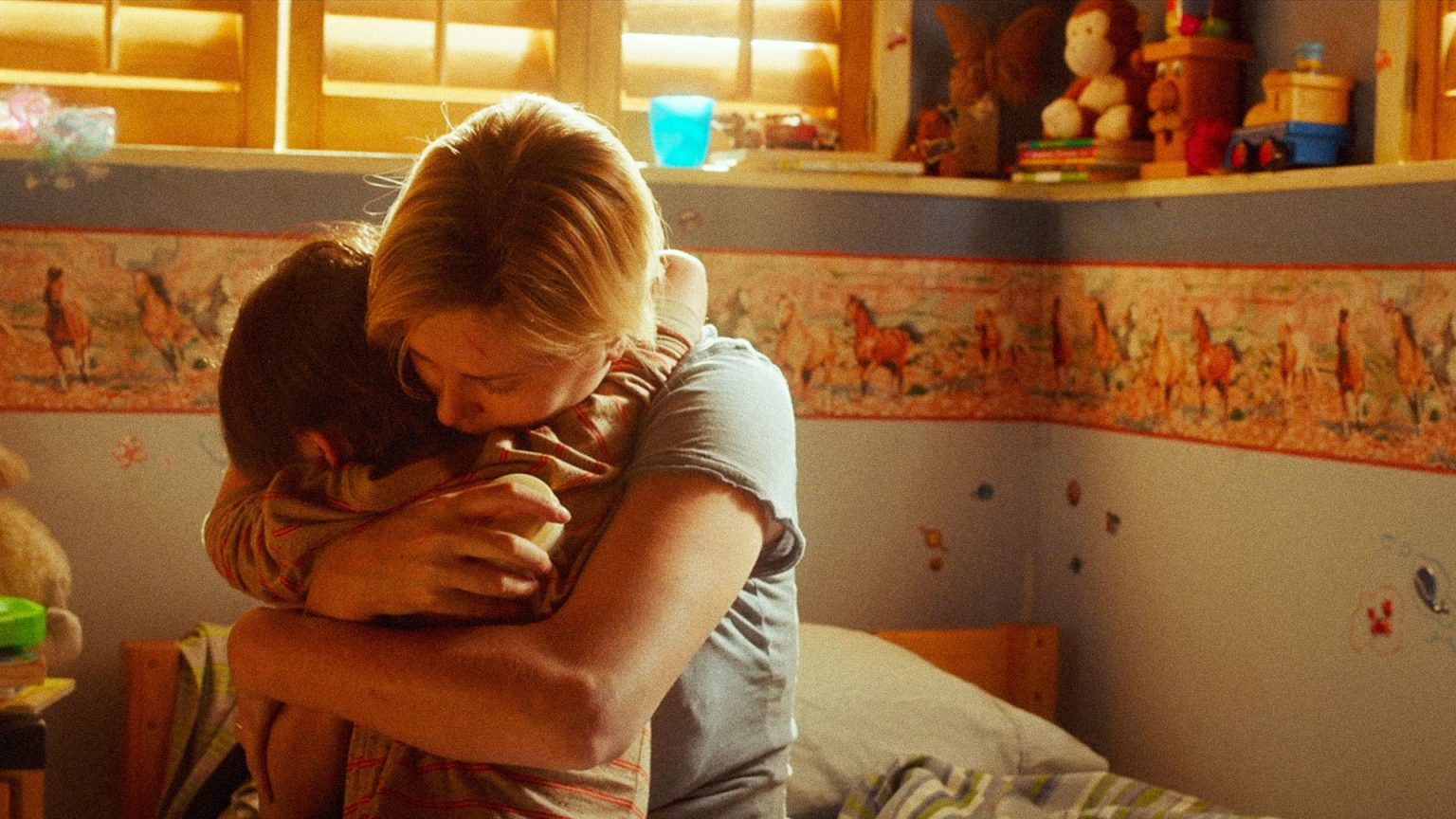Is there really anything new under the sun? Novelist Leo Tolstoy once wrote that there are two kinds of stories in literature: “A man goes on a journey or a stranger comes to town.” If you think about it, just about every movie can be put into a variant of one of these two categories, as well, from high fantasy and dystopian science fiction to crime thrillers and horror, and everything in between.
In Tully, the beautiful and brutal new film from screenwriter-director-star trifecta Diablo Cody, Jason Reitman, and Charlize Theron, the plot writhes like a fish, continually escaping expectation. Ostensibly, it is about a family (wife and mother Marlo, husband Drew, and their three young children), who are fraying at the edges from a scarcity of resources. At Craig’s (Marlo’s wealthy brother) urging, and with his financial help, they enlist the help of “night nanny,” Tully, to watch their newborn so they (meaning Marlo) can finally get a good night’s sleep and begin to recover a sense of normalcy. Watching Tully, and trying to analyze what’s so compelling about it, I was struck by, among other things, how much the film exploits cinema’s vast canon of nannies, babysitters, and caregivers, and how those kinds of movies fit into Tolstoy’s two categories.
There are, just for starters, the movies where the nanny herself is the protagonist—these can be period dramas, like Jane Eyre, or The Governess, or more contemporary fare like Uptown Girls or The Nanny Diaries. In these stories, the nanny’s emotional arc is the one in the spotlight, and she is often struggling against race and class bias, if not the family themselves. The movies become about the journey—literal, psychological, emotional—she undertakes by entering this new household and family dynamic.
Then, you have your magic nanny films, like Mary Poppins and Nanny McPhee. In these, the original nuclear family is in focus, and their relationships are given new life through the addition of this incredibly convenient otherworldly helper. Movies like The Sound of Music and Corinna, Corinna are love stories at their core, wherein the nanny is the missing piece that puts together a broken family after the death of the mother and wife. Here, the stranger is a benevolent and selfless caregiver and the “town” (in this case, the household) is better off for their arrival.
Then, of course, there are the bad nannies. Maybe they want revenge, like in The Hand that Rocks the Cradle, or maybe they’re after the husband, or the child, or both. The stranger earns the trust of the family unit only to act as an interloper, surveyor, seducer, and “replacement” mom. By contrast, movies about male nannies, or “mannies” (Daddy Day Care, Mr. Nanny, and I’d count Mrs. Doubtfire among them as well) are almost always about the inner journey of the man as he learns to do the emotional labor of caregiving and child-rearing.
There are many moments in Tully when the plot seems to be veering in one or another of these directions. At one point, the dialogue even self-consciously references the trope of the bad nanny as a reason to refuse the hire-in help. In some scenes, Tully seems like a manic pixie fever dream who goes above and beyond the call of duty, delivering mornings full of cupcakes, a clean house, and a satisfied husband. At other times, she seems more like a possibly sinister troublemaker who convinces Marlo to drink wine and drive her minivan to Brooklyn in the middle of the night. At the same time, under Tully’s wing, Marlo is more connected to her children and her life, not less—as if Tully is giving her the full Mary Poppins treatment. As Marlo and Drew let their guard down and let Tully in—and when they do, she almost immediately heads for the fridge—we begin to wonder if she is really all that she seems, or if she has ulterior motives. And if not, why not?
Without spoiling the fun of your own discovery about this movie, the cleverness of Tully is that we watch almost all of it while under the impression that it’s about a stranger coming to town, but in the end, realize that it’s really about a journey. And in the end, that’s why Tully can be considered a direct and deliberate descendant of, but not an actual addition to, the robust and diverse canon of caregiver cinema.




